
Have you ever used hydrogen peroxide as a mouthwash and noticed that it starts to bubble in your mouth? It may seem alarming, but it's actually a normal reaction that occurs when hydrogen peroxide comes into contact with certain substances in your mouth. In this article, we'll explore why hydrogen peroxide bubbles in your mouth and whether it's safe to use as a mouthwash.
What is Hydrogen Peroxide?
Hydrogen peroxide is a chemical compound that is commonly used as a disinfectant and bleaching agent. It's made up of two hydrogen atoms and two oxygen atoms, giving it the chemical formula H2O2. When hydrogen peroxide comes into contact with organic material, it breaks down into water and oxygen gas. This reaction is what causes the bubbling effect that you see when using hydrogen peroxide as a mouthwash.
Why Does Hydrogen Peroxide Bubble in Your Mouth?
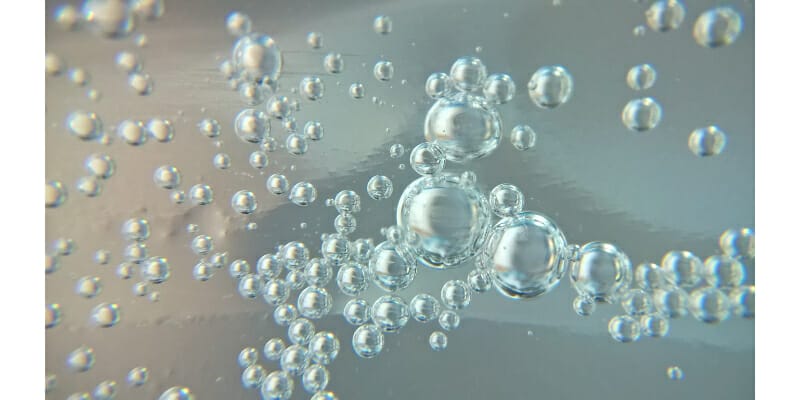
When you use hydrogen peroxide as a mouthwash, it comes into contact with the bacteria and other organic material in your mouth. The enzymes in the bacteria and other organic material break down the hydrogen peroxide into water and oxygen gas, which causes the bubbling effect that you see. This reaction is similar to what happens when hydrogen peroxide is used to clean wounds, as it helps to kill bacteria and promote healing.
Is it Safe to Use Hydrogen Peroxide as a Mouthwash?

Hydrogen peroxide is generally considered safe to use as a mouthwash when used in small amounts and diluted with water. It can help to kill bacteria, whiten teeth, and freshen breath. However, it's important to avoid swallowing hydrogen peroxide, as it can cause stomach irritation and other health problems. It's also important to use hydrogen peroxide in moderation and not to use it as a long-term solution for oral health problems.
Conclusion
In conclusion, hydrogen peroxide bubbles in your mouth because of a reaction that occurs when it comes into contact with bacteria and other organic material. While it's generally safe to use as a mouthwash when used in small amounts and diluted with water, it's important to use it in moderation and not to use it as a long-term solution for oral health problems. If you have any concerns about using hydrogen peroxide as a mouthwash, be sure to consult with your dentist or healthcare provider.
Related video of Why Does Hydrogen Peroxide Bubble In Your Mouth

The Mystery Behind Heinz 57
Heinz is a well-known brand that has been around for over 150 years. One of their most famous slogans is "57 varieties," which can be found on their products and advertisements. But why does Heinz have 57?

The Origin of Heinz 57
The number 57 isn't just a random number that Heinz came up with. In fact, it has a special meaning. According to the company, the number 57 represents the number of varieties of products they had when the slogan was created. At the time, Heinz had over 60 products, but the company's founder, Henry J. Heinz, chose 57 because he thought it was catchy and easy to remember.

The Success of Heinz 57
The "57 varieties" slogan has become a well-known part of Heinz's brand identity. It has been used in advertising campaigns, on product packaging, and even on the company's website. The success of the slogan can be attributed to its simplicity and memorability.
Heinz's Product Line
Heinz has come a long way since the days when they only had 57 products. Today, the company offers a wide variety of products, including ketchup, mustard, mayonnaise, salad dressings, and more. They also have a line of frozen foods and snacks.

The History of Heinz
Heinz was founded in 1869 by Henry J. Heinz, who started the company with his brother and cousin. The company initially sold horseradish, but quickly expanded to other products, including pickles and ketchup.

Heinz's Impact on the Food Industry
Heinz has had a significant impact on the food industry. The company was one of the first to use mass production techniques, which allowed them to produce large quantities of products at a lower cost. They were also one of the first companies to use clear glass jars for their products, which allowed customers to see the quality of the product inside.

Heinz's Commitment to Quality
Throughout its history, Heinz has been committed to producing high-quality products. The company uses only the finest ingredients and has strict quality control standards to ensure that their products meet their customers' expectations.
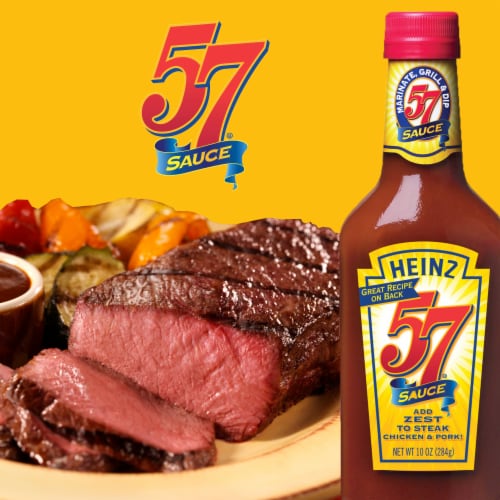
Heinz's Global Reach
Today, Heinz is a global brand with products available in over 200 countries. The company has manufacturing facilities around the world and employs thousands of people.

Heinz's Philanthropic Efforts
Heinz has also been involved in philanthropy throughout its history. The company has donated to various charities and has worked to improve the communities where it operates.

In Conclusion
Heinz's "57 varieties" slogan has become a well-known part of the brand's identity. The number 57 represents the number of products the company had when the slogan was created. Heinz's commitment to quality and philanthropy has helped the company become a global brand with a significant impact on the food industry.
Related video of Why Does Heinz Have 57?
Dr Pepper is a popular soft drink that has been enjoyed by millions of people around the world. However, have you ever wondered why Dr Pepper tastes different from other soft drinks? In this article, we will explore the reasons why Dr Pepper has a unique taste and what sets it apart from other soft drinks.
The History of Dr Pepper

Dr Pepper was first created in 1885 by Charles Alderton, a pharmacist in Waco, Texas. Alderton created the soft drink by blending together various fruit flavors and carbonated water, and it quickly became a local favorite.
Dr Pepper was originally sold as a tonic for various ailments, and it wasn't until several years later that it was marketed as a soft drink. Today, the brand is owned by Keurig Dr Pepper and is sold in over 200 countries around the world.
The Unique Flavor of Dr Pepper

One of the reasons why Dr Pepper tastes different from other soft drinks is its unique flavor. Dr Pepper is made up of 23 different flavors, including vanilla, cherry, and caramel, which gives it a complex and distinctive taste.
The exact recipe for Dr Pepper is a closely guarded secret, and only a few people know the exact combination of flavors that are used to create the soft drink. This secrecy has helped to maintain the unique flavor of Dr Pepper and has made it a favorite among soft drink enthusiasts.
The Role of Prune Juice

One of the ingredients that is often cited as giving Dr Pepper its unique flavor is prune juice. While this may sound unappetizing, the truth is that prune juice adds a sweet, fruity flavor to the soft drink that is hard to replicate with other ingredients.
Prune juice also contains a natural preservative called sorbic acid, which helps to extend the shelf life of Dr Pepper without the need for artificial preservatives. This has helped to make Dr Pepper a more natural option for consumers who are concerned about the ingredients in their food and beverages.
The Importance of Carbonation

Another key factor that sets Dr Pepper apart from other soft drinks is the level of carbonation. Dr Pepper is carbonated to a higher level than many other soft drinks, which gives it a crisp, refreshing taste that is hard to replicate.
The high level of carbonation also helps to enhance the flavors in Dr Pepper and makes it a favorite among people who enjoy a fizzy soft drink. However, the high level of carbonation can also make Dr Pepper more difficult to drink for some people, particularly those who are sensitive to carbonated beverages.
The Bottom Line
Overall, Dr Pepper tastes different from other soft drinks because of its unique blend of flavors, including prune juice, and its high level of carbonation. While some people may not enjoy the taste of Dr Pepper, it remains a popular soft drink among millions of people around the world.
So, the next time you crack open a can of Dr Pepper, take a moment to appreciate the complex flavors and unique taste that make it one of the most popular soft drinks in the world.
Related video of Why Does Dr Pepper Taste Different?
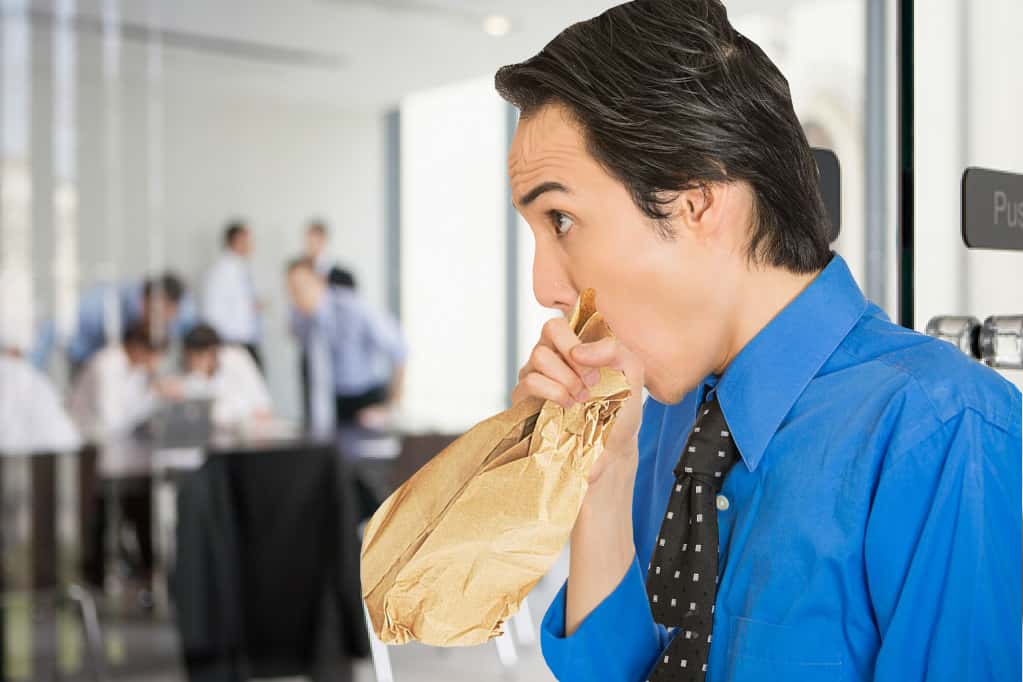
Introduction
Breathing into a bag is a practice that is often used for those who are experiencing anxiety or panic attacks. It is a simple process that involves breathing in and out of a paper or plastic bag. But why does it help? In this article, we will explore the science behind breathing into a bag and why it can be an effective tool for managing anxiety.
What Happens During A Panic Attack?
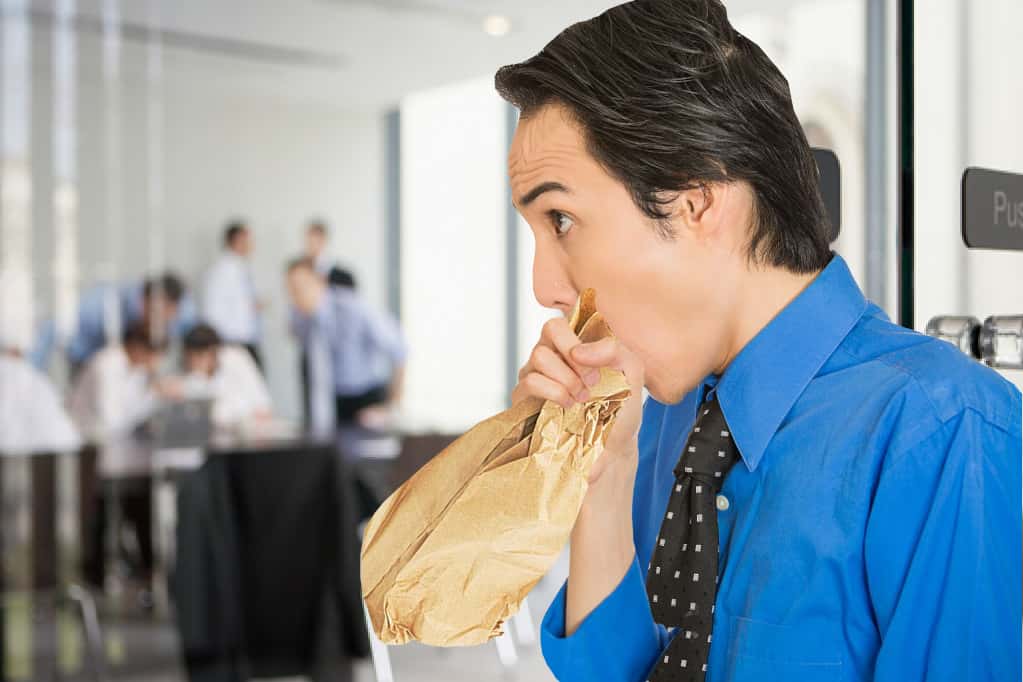
Panic attacks are sudden and intense bursts of fear or anxiety. They are often accompanied by physical symptoms such as rapid heartbeat, sweating, and shortness of breath. Panic attacks can be triggered by a variety of factors, including stress, trauma, or a phobia.
How Breathing Into A Bag Helps

When you breathe into a bag, you are essentially inhaling carbon dioxide. This can help to reduce the symptoms of a panic attack by slowing down your breathing and heart rate. Breathing into a bag can also help to regulate the levels of oxygen and carbon dioxide in your body, which can have a calming effect on your nervous system.
When To Use Breathing Into A Bag
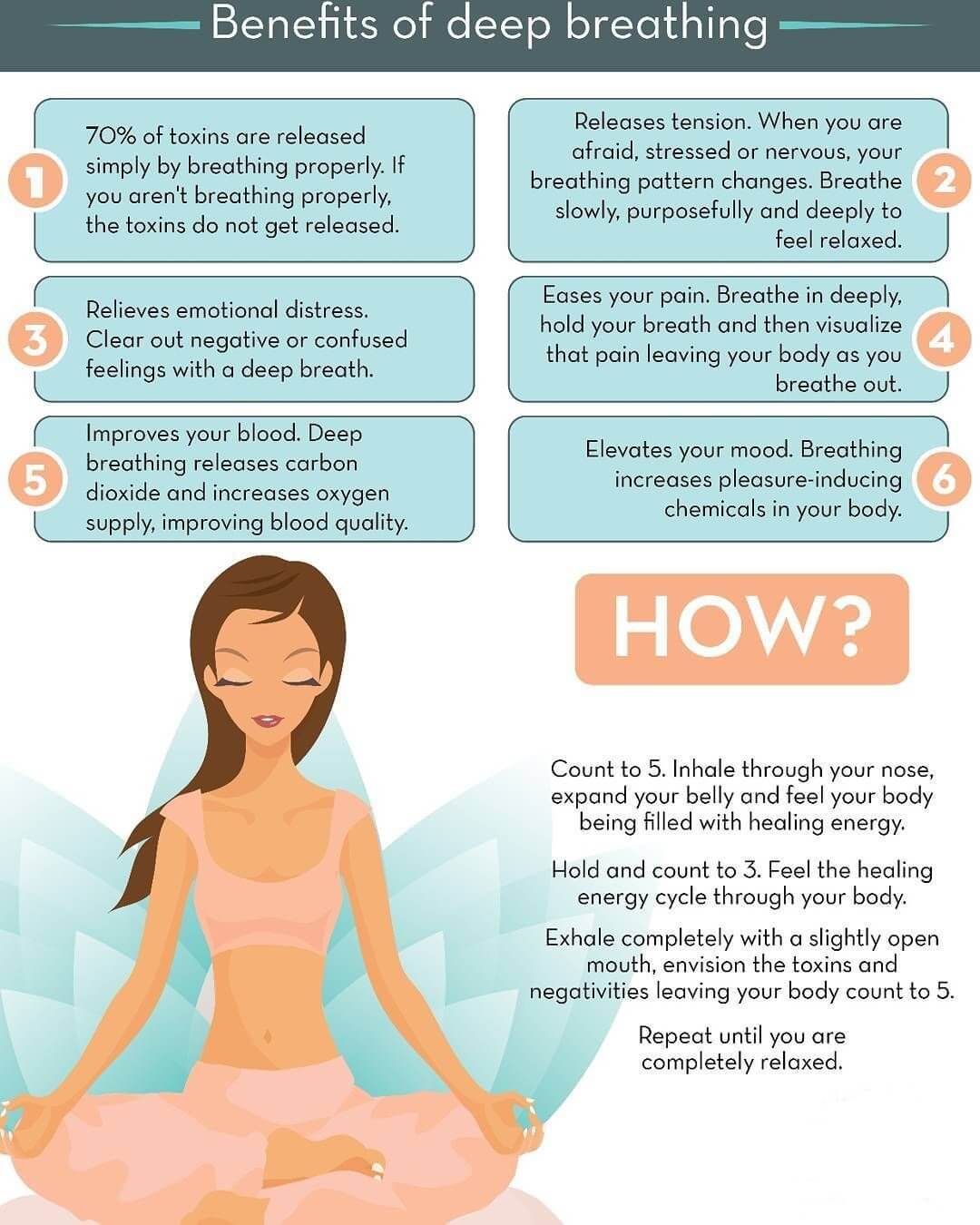
Breathing into a bag should only be used in specific situations. It is not recommended for everyday use, and it should not be used as a substitute for professional medical treatment. Breathing into a bag can be helpful for those who are experiencing a panic attack, but it is not a long-term solution for managing anxiety.
How To Use Breathing Into A Bag
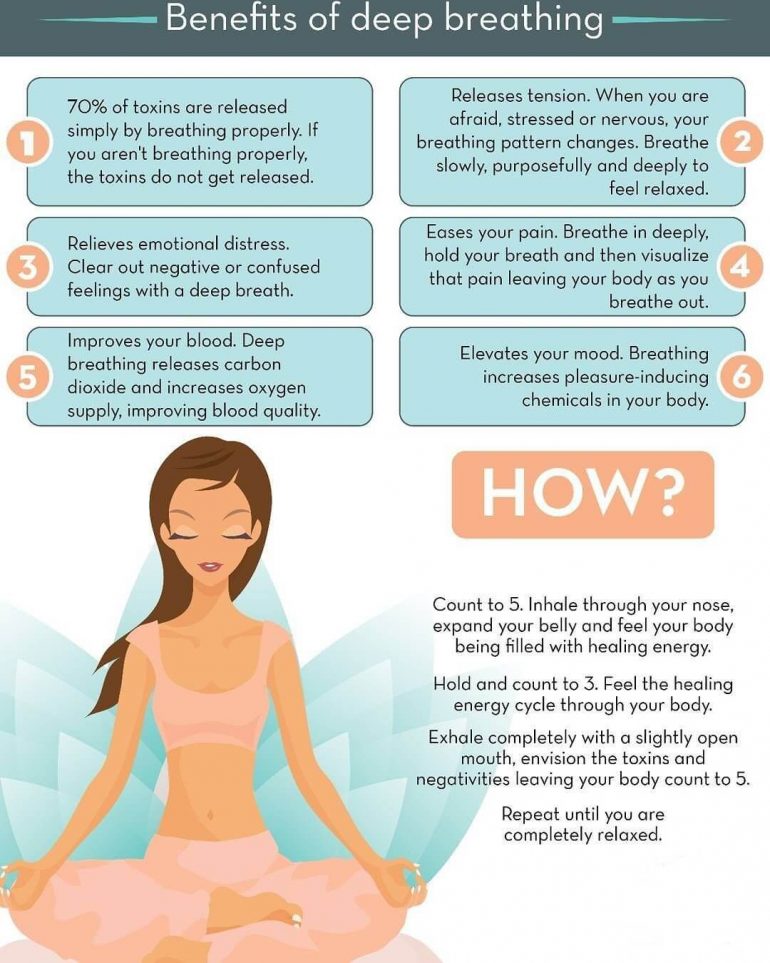
If you are experiencing a panic attack and want to try breathing into a bag, follow these steps:
- Find a paper or plastic bag that is large enough to cover your mouth and nose.
- Sit down in a comfortable position.
- Place the bag over your mouth and nose.
- Breathe in and out slowly and deeply into the bag.
- Continue breathing into the bag for several minutes, or until your symptoms subside.
Precautions When Using Breathing Into A Bag

Breathing into a bag can have some risks if not done correctly. It is important to use caution when using this technique and to follow these precautions:
- Do not use a plastic bag that is too small or that does not have any holes in it.
- Be aware of the potential risks of hyperventilation, which can occur if you breathe too quickly or too deeply into the bag.
- Do not use breathing into a bag as a substitute for medical treatment.
Other Techniques For Managing Anxiety

Breathing into a bag can be a helpful tool for managing anxiety, but it is not the only technique available. Here are some other techniques that can be effective for managing anxiety:
- Meditation
- Exercise
- Cognitive-behavioral therapy
- Relaxation techniques
- Prescription medication (if recommended by a doctor)
Conclusion
Breathing into a bag can be a helpful tool for managing anxiety, especially in the midst of a panic attack. It works by regulating the levels of oxygen and carbon dioxide in your body, which can have a calming effect on your nervous system. However, it is important to use caution when using this technique and to follow the precautions outlined above. If you are struggling with anxiety, there are many other techniques available that can help. Talk to your doctor or a mental health professional to find the best treatment plan for you.
Related video of Why Does Breathing Into A Bag Help

The Culprit: Asparagusic Acid
Have you ever noticed that after eating asparagus, your pee smells strange? It's a common phenomenon that has puzzled people for centuries. The reason behind this strange odor lies in asparagusic acid, a sulfur-containing compound found in asparagus.
When you eat asparagus, your body breaks down asparagusic acid into a group of sulfur-containing compounds, including methanethiol, dimethyl sulfide, and dimethyl disulfide. These compounds are volatile and can easily evaporate into the air, giving off a distinct odor.
Not Everyone Can Smell It
Interestingly, not everyone can smell the odor produced by asparagus pee. Researchers believe that this is due to genetic differences in the ability to detect certain odorants. About 22% of the population is unable to smell the odor, while others can detect it within minutes of eating asparagus.
It's Not Harmful
Despite the pungent odor, asparagus pee is not harmful. In fact, it's a sign that your body is functioning properly. Asparagus is high in fiber, vitamins, and minerals, and it's a great addition to a healthy diet. So, don't let the smell deter you from enjoying this tasty vegetable.
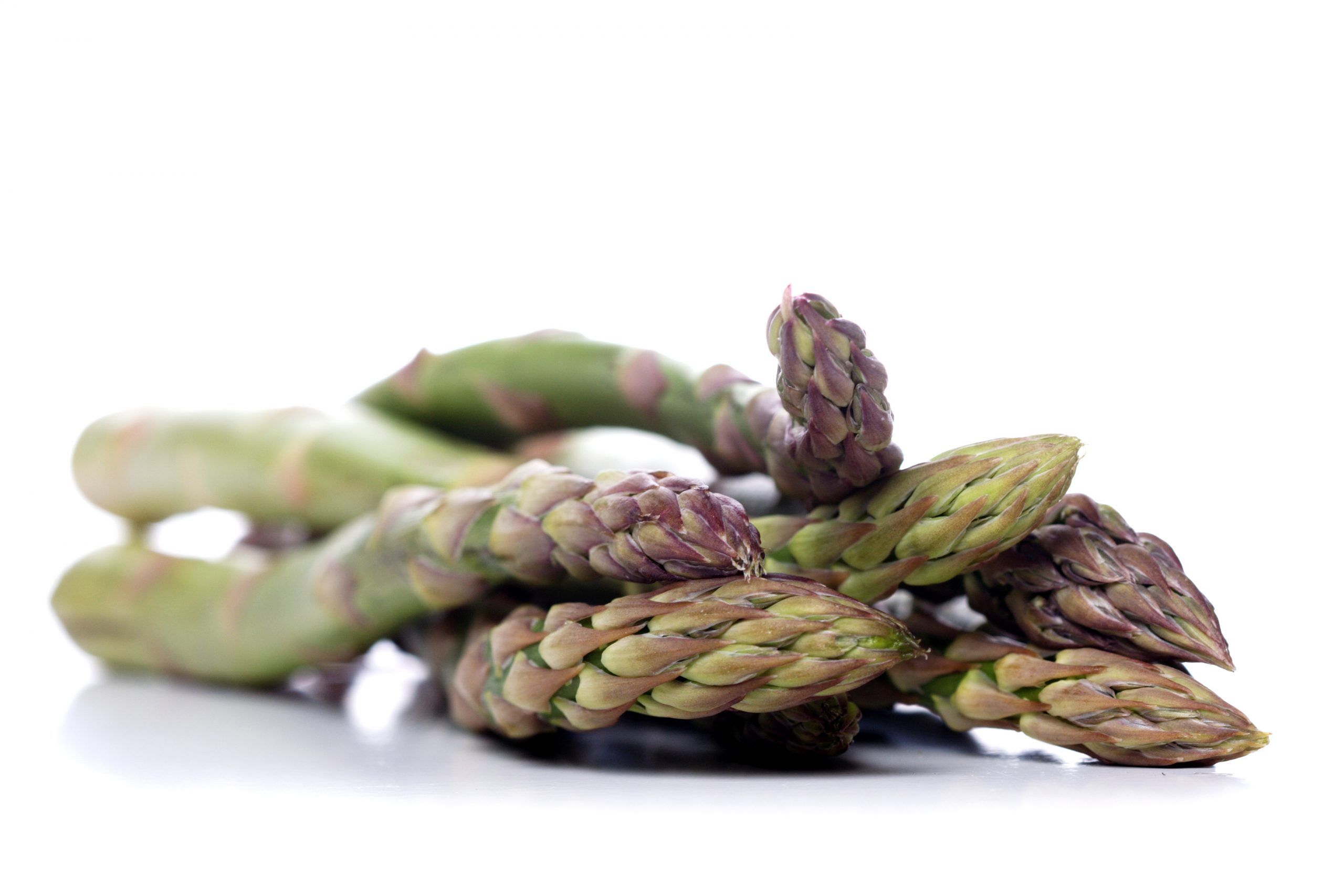
How to Reduce the Odor
If you're bothered by the smell of asparagus pee, there are a few things you can do to reduce it. Drinking plenty of water can help dilute the odor-causing compounds, making them less pungent. You can also try adding lemon juice or vinegar to your asparagus, as the acidity can help neutralize the compounds.
Another option is to simply avoid eating asparagus altogether, but that would mean missing out on all of its health benefits and delicious flavor.
The Bottom Line
Asparagus pee may be an unpleasant side effect of eating this tasty vegetable, but it's not harmful and is a sign that your body is functioning properly. If the odor bothers you, there are ways to reduce it, but don't let it stop you from enjoying the many health benefits of asparagus.
Related video of Why Does Asparagus Make Pee Stink?
When the temperature drops, many people turn to alcohol to warm themselves up. But why does alcohol make you feel warm? Let's dive into the science behind this phenomenon.
The Blood Vessel Dilation Effect

One of the main reasons alcohol makes you feel warm is due to its ability to dilate blood vessels. When you drink alcohol, it causes your blood vessels to expand, allowing more blood to flow through them. This increase in blood flow can make you feel warmer, as more blood is reaching your skin.
This is also why your face may turn red after consuming alcohol. The blood vessels in your face dilate, causing a flushed appearance.
The False Sense of Warmth

Another reason why alcohol makes you feel warm is due to the false sense of warmth it creates. When you consume alcohol, it can affect your ability to sense temperature accurately. This can lead you to believe you are warmer than you actually are.
So, while you may feel warmer after drinking alcohol, it's important to remember that this warmth is not actually increasing your body temperature.
The Metabolic Effect

Alcohol can also have a metabolic effect on your body. When you drink alcohol, your body works to metabolize it. This process creates heat, which can make you feel warmer.
However, it's important to note that this effect is minimal and not significant enough to cause a noticeable increase in body temperature.
The Body's Reaction to Cold

Finally, alcohol may make you feel warmer simply because your body is reacting to the cold. When your body is exposed to cold temperatures, it naturally tries to keep warm by shivering and constricting blood vessels.
By consuming alcohol, you may be able to counteract some of these natural responses, making you feel warmer in the process.
Conclusion
While alcohol may make you feel warmer, it's important to remember that this warmth is not actually increasing your body temperature. Instead, it's a combination of factors, including blood vessel dilation, false sense of warmth, metabolic effect, and the body's reaction to cold.
If you plan on drinking alcohol to warm up, make sure to do so in moderation and take other precautions to stay warm, such as wearing warm clothing and staying indoors.
Related video of Why Does Alcohol Keep You Warm

Introduction
Hiccups are involuntary contractions of the diaphragm muscle. They can happen to anyone at any time and can be quite embarrassing. They are usually harmless and go away on their own, but sometimes they can be a sign of an underlying health condition. In this article, we will explore the reasons why you hiccup and what you can do to get rid of them.
What Causes Hiccups?

There are many reasons why you might hiccup. Some of the most common causes include:
- Eating too quickly or too much
- Drinking carbonated beverages or alcohol
- Swallowing air while chewing gum or smoking
- Stress or excitement
- Changes in temperature or humidity
- Some medications
In some cases, hiccups can be a sign of a more serious health condition, such as gastroesophageal reflux disease (GERD), pneumonia, or even cancer. If your hiccups persist for more than 48 hours, it's important to see a doctor to rule out any underlying health problems.
How Do Hiccups Work?

When you hiccup, your diaphragm muscle contracts involuntarily, causing you to inhale suddenly. This sudden inhale causes your vocal cords to close, producing the characteristic "hic" sound. Hiccups typically last for only a few minutes, but in some cases they can last for hours or even days.
How Can You Get Rid of Hiccups?

There are many home remedies that can help you get rid of hiccups. Some of the most effective remedies include:
- Drinking a glass of water quickly
- Breathing into a paper bag
- Holding your breath for a few seconds
- Gargling with ice water
- Biting on a lemon or sucking on a piece of ginger
If your hiccups persist for more than a few minutes, it's important to try these remedies to see if they help. If your hiccups continue for an extended period of time, it's important to see a doctor to rule out any underlying health problems.
Conclusion
Hiccups are a common occurrence that can happen to anyone at any time. They are usually harmless and go away on their own, but sometimes they can be a sign of an underlying health condition. If your hiccups persist for more than 48 hours, it's important to see a doctor to rule out any underlying health problems. In the meantime, try some of the home remedies listed above to help get rid of your hiccups.
Related video of Why Do You Hiccup?

Wolves have always been fascinating creatures that have captured the attention of people around the world. One of the most unique things about wolves is their howl. It's a sound that is both eerie and beautiful, and it's something that many people wonder about. Why do wolves howl? In this article, we will explore the different reasons why wolves howl, as well as some interesting facts about these majestic creatures.
The Basics of Wolf Howling
Before we dive into the reasons why wolves howl, it's important to understand the basics of howling. Wolves howl for various reasons, including communication, social bonding, and territorial marking. Howling is a form of long-distance communication that allows wolves to communicate with other members of their pack, as well as other packs in the area. Howling can also serve as a way for wolves to locate each other when they are separated.
Reasons Why Wolves Howl

Now that we understand the basics of wolf howling, let's explore the different reasons why wolves howl:
Communication

As mentioned earlier, one of the primary reasons why wolves howl is for communication. Wolves are social animals that live in packs, and howling allows them to stay connected with each other. Wolves use different types of howls to convey different messages. For example, a low-pitched howl may indicate that a wolf is in distress, while a higher-pitched howl may indicate that a wolf has found prey.
Social Bonding
Another reason why wolves howl is for social bonding. Howling can serve as a way for wolves to strengthen their social bonds with other members of their pack. Young wolves, in particular, may howl more frequently as a way to bond with their siblings and parents.
Territorial Marking

Wolves also howl as a way to mark their territory. Howling can serve as a warning to other packs that they are entering the territory of another pack. Wolves may also howl to let other packs know that they are in the area and to avoid conflict.
Mating Calls

Finally, wolves may also howl as a way to attract mates. During mating season, wolves may howl more frequently as a way to signal their readiness to mate.
Interesting Facts About Wolf Howling

Now that we've explored the different reasons why wolves howl, let's take a look at some interesting facts about wolf howling:
Wolves Can Howl for Miles

Wolves have a powerful howl that can be heard for miles. In fact, wolves can howl up to six miles away in open terrain. This allows them to communicate with other members of their pack, even when they are far apart.
Wolves Howl More During Full Moons

Wolves are known for their association with full moons, and it turns out that they may howl more frequently during full moons. This may be due to the increased visibility provided by the moon, which allows wolves to see and communicate with each other more easily.
Wolves Have Unique Howls

Each wolf has a unique howl that can be recognized by other members of its pack. This allows wolves to identify each other and stay connected, even in large packs.
Wolves Can Howl in Harmony
Finally, wolves are able to howl in harmony with each other. This is because each wolf has a unique pitch and tone, which allows them to create a chorus-like effect when they howl together.
Conclusion
Wolves howl for a variety of reasons, including communication, social bonding, territorial marking, and mating calls. Howling is a powerful form of long-distance communication that allows wolves to stay connected with each other, even when they are far apart. Wolves also have unique howls that can be recognized by other members of their pack, and they are able to howl in harmony with each other. Overall, wolf howling is a fascinating behavior that offers insight into the complex social lives of these majestic creatures.
Related video of Why Do Wolves Howl?
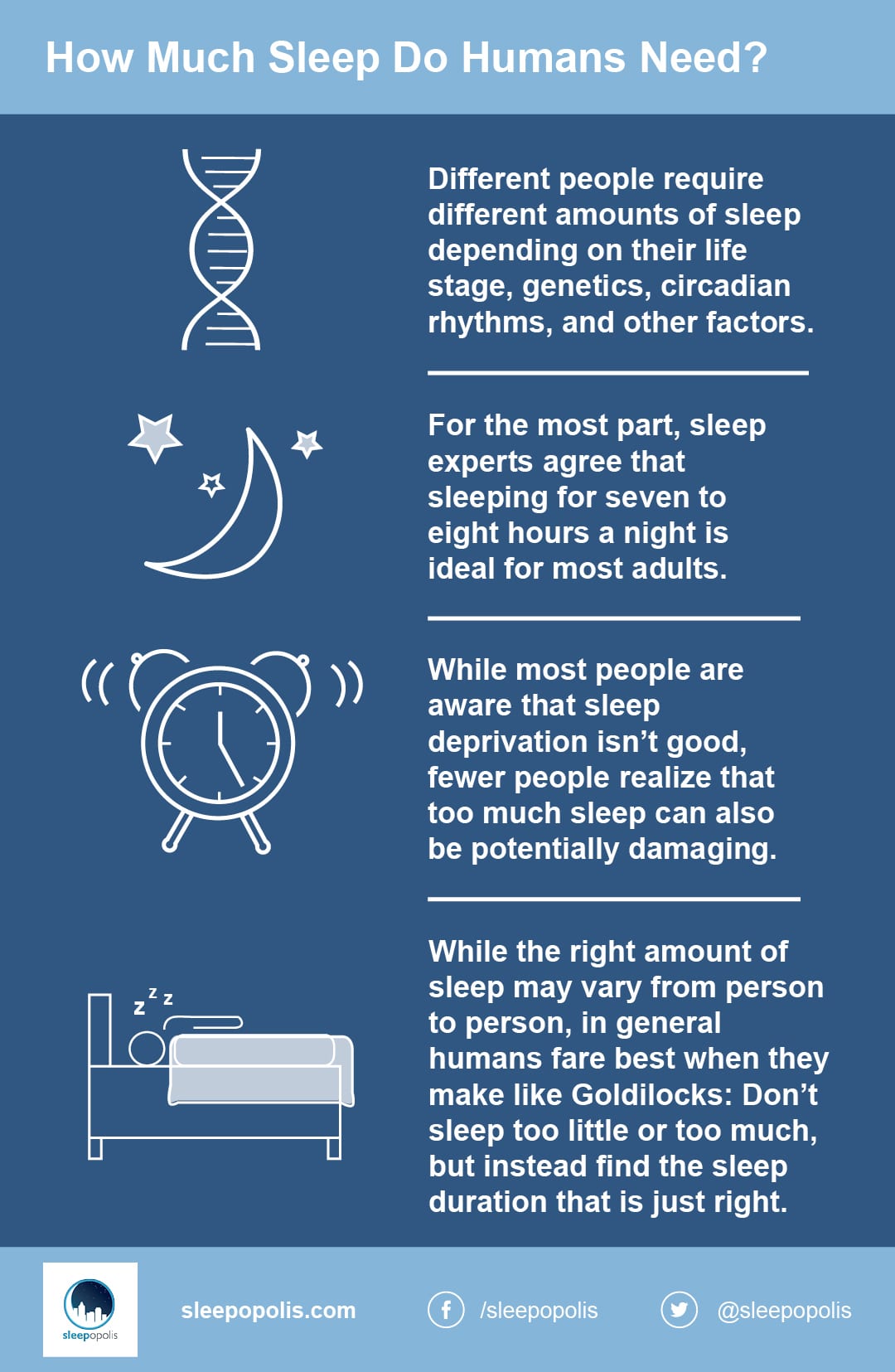
Sleep is a fundamental human need that allows us to recharge and function properly. It is a natural process that occurs in all animals and plays an essential role in maintaining overall health and well-being. Despite its importance, many people fail to get enough sleep, which can have serious consequences for both physical and mental health.
The Physical Benefits of Sleep

One of the primary benefits of sleep is its ability to help the body repair and regenerate. During sleep, the body produces important hormones that promote tissue repair and growth, including growth hormone and testosterone. Sleep also helps to boost the immune system, which can help to protect against illness and disease.
In addition, sleep is essential for maintaining a healthy weight. Studies have shown that people who get enough sleep are less likely to be overweight or obese, and are more likely to have a healthy body mass index (BMI).
The Mental Benefits of Sleep

Sleep is also crucial for maintaining good mental health. It helps to regulate mood and emotions, and can reduce the risk of developing depression and anxiety. Getting enough sleep can also improve cognitive function, including memory, concentration, and decision-making.
On the other hand, sleep deprivation can have serious negative effects on mental health. It can lead to irritability, mood swings, and difficulty concentrating, as well as more serious consequences such as hallucinations and delusions.
The Risks of Sleep Deprivation
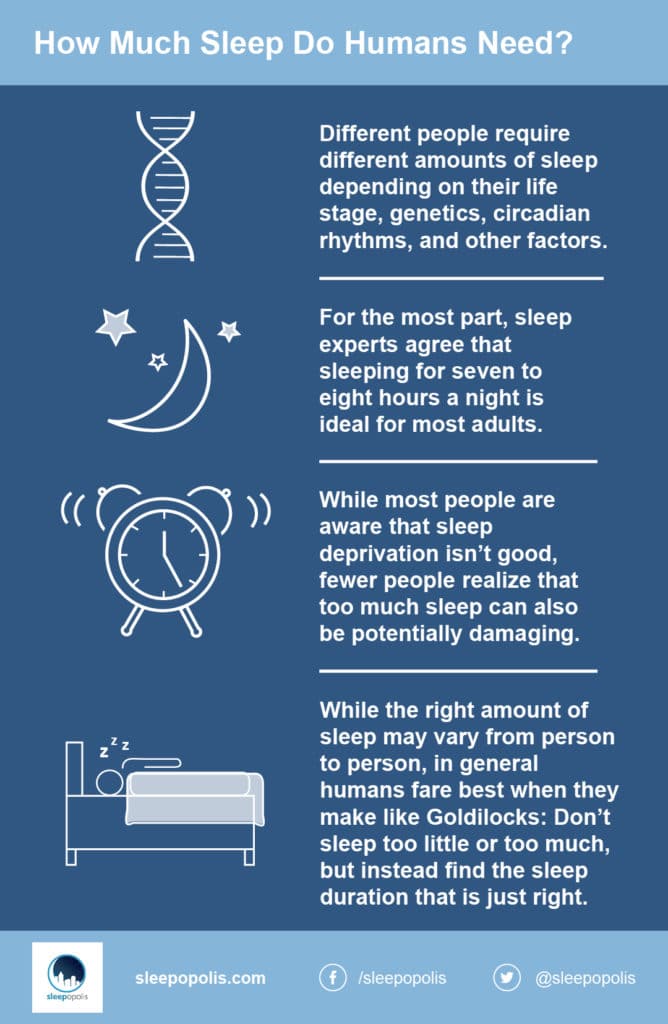
Despite the many benefits of sleep, many people still fail to get enough of it. In fact, sleep deprivation is becoming increasingly common in today's fast-paced society. This can have serious consequences for both physical and mental health, including:
- Increased risk of obesity and weight gain
- Increased risk of heart disease and stroke
- Increased risk of diabetes
- Impaired immune function
- Poor cognitive function and memory
- Increased risk of depression and anxiety
- Increased risk of accidents and injuries
How Much Sleep Do We Need?
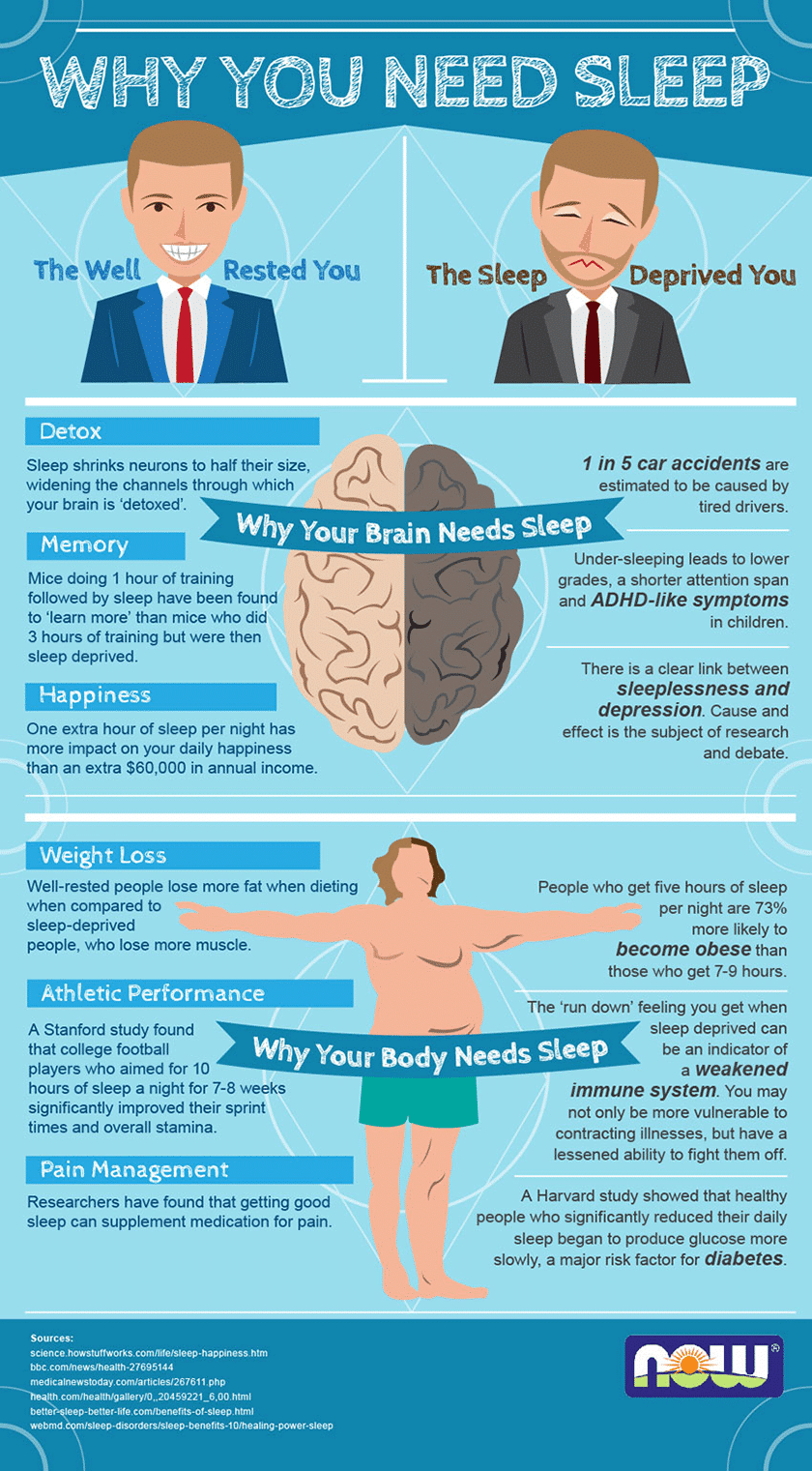
The amount of sleep each person needs can vary depending on factors such as age, lifestyle, and overall health. However, as a general rule, most adults need between 7 and 9 hours of sleep per night to function at their best. Children and teenagers may need more, while older adults may need less.
It's important to note that quality, as well as quantity, of sleep is important. Poor quality sleep, such as frequent waking or difficulty falling asleep, can still lead to many of the negative consequences of sleep deprivation.
Tips for Getting Better Sleep
If you're struggling to get enough good quality sleep, there are several things you can do to improve your sleep habits. These include:
- Establishing a regular sleep schedule and sticking to it
- Avoiding caffeine and alcohol before bedtime
- Creating a relaxing bedtime routine
- Limiting screen time before bed
- Making sure your sleep environment is comfortable and conducive to sleep
By making these simple changes, you can improve the quality and quantity of your sleep, and enjoy all the physical and mental benefits that come with it.
Conclusion
Sleep is a vital part of our overall health and well-being. It plays an essential role in both physical and mental health, and can have serious consequences when we don't get enough of it. By prioritizing sleep and making simple changes to our sleep habits, we can enjoy all the benefits that come with a good night's rest.